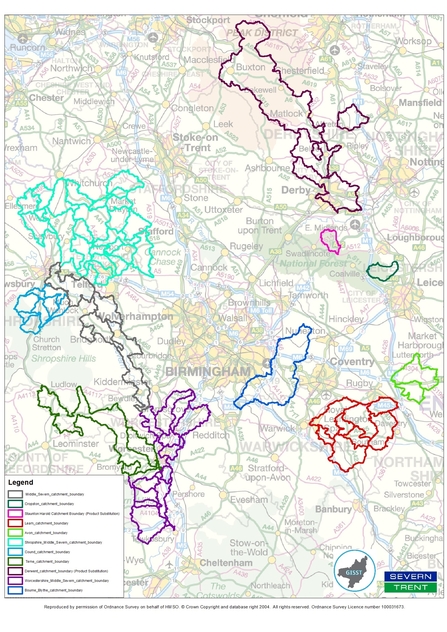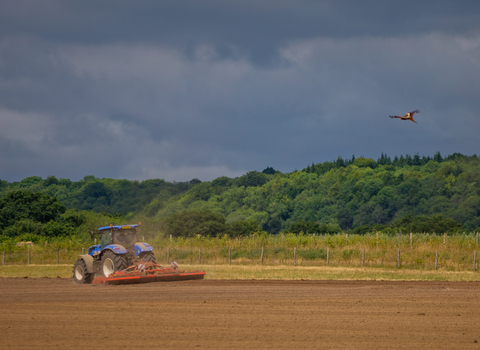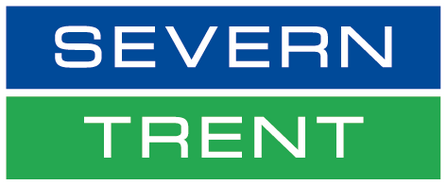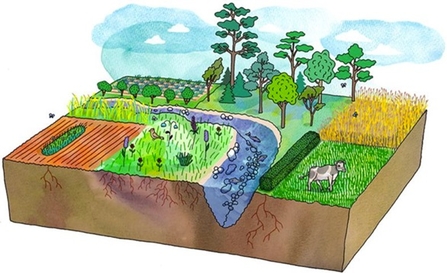Shropshire Wildlife Trust has recently joined forces with Severn Trent Water to help tackle diffuse water pollution. We are working with farmers in targeted catchments across Shropshire to support and encourage the good work that is already being done to reduce the amount of harmful nutrients, pesticides and sediment entering our precious water bodies.
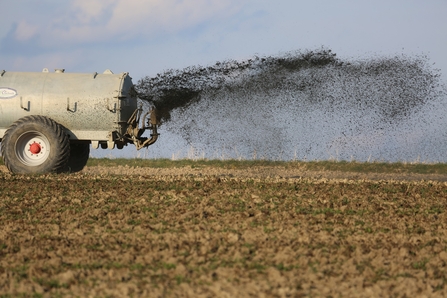
What is the problem?
Diffuse water pollution is a term used to describe pollution that comes from different sources across a catchment that often cannot be traced to a single point.
Diffuse water pollution is the single largest agricultural contribution to the failure of water bodies to achieve good ecological status under the EU Water Framework Directive.
According to DEFRA, farming accounts for 25% of phosphate, 50% of nitrate and 75% of sediment loadings in the water environment.
Diffuse water pollution has no single point of origin in the landscape therefore poses a significant policy and management challenge.
How can we manage diffuse water pollution?
Manage it at the source
Think about what is put on the land and when, how fields are cultivated and what is grown.
Manage how it is mobilised through the environment
Think about the timing of applications of nutrients and pesticides to ensure that these essential and costly resources are doing the best for crops and are not wasted by being washed or blown away.
Manage the pathways across the landscape
Think about how machinery is moved across fields to reduce compaction, consider moving gateways to reduce erosion hot spots.
Protect the receptors
Drains, rivers, pools and groundwater are vulnerable to pollution, cleaning and filtering water before it reaches these receptors is the best way to protect our vital water resources.
Shropshire Wildlife Trust and Severn Trent Water partnership approach
The partnership makes use of the knowledge and expertise of Shropshire Wildlife Trust in working with farmers and the environment. Our team of advisors are helping to provide advice and support to eligible farmers in applying for Severn Trent Water grants programs including Farm to Tap and STEPS.
For more information on Farm to Tap click here
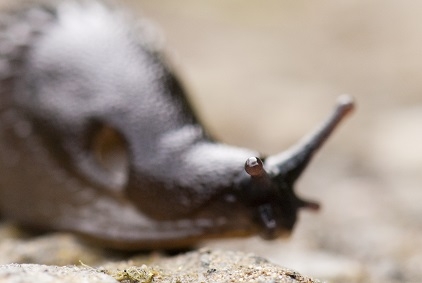
The STEPS (Severn Trent Environmental Protection Scheme) grants are available to farmers within priority catchments. They provide a wide variety of options to help farmers protect soil, biodiversity and water in a sustainable way. Funding is available for projects ranging from fencing, to pesticide wash-down areas and biobeds. In addition to the extensive pre-defined list of grant options, STEPS also recognises the fact that farmers are innovators and provides funding towards ideas and activities that help to protect our valuable water resources.
Find out more
If you are interested in finding out more about our Farming and Wildlife activities, or if you are a farmer in one of our priority catchments shown on the map below, get in touch with us and we’ll be happy to chat!
Shropshire Middle Severn Catchment- Cath Edwards: CathE@shropshirewildlifetrust.org.uk
Groundwater Catchments - Emma Jones: EmmaJ@shropshirewildlifetrust.org.uk
Teme Catchment - Jess Nott: JessN@shropshirewildlifetrust.org.uk
